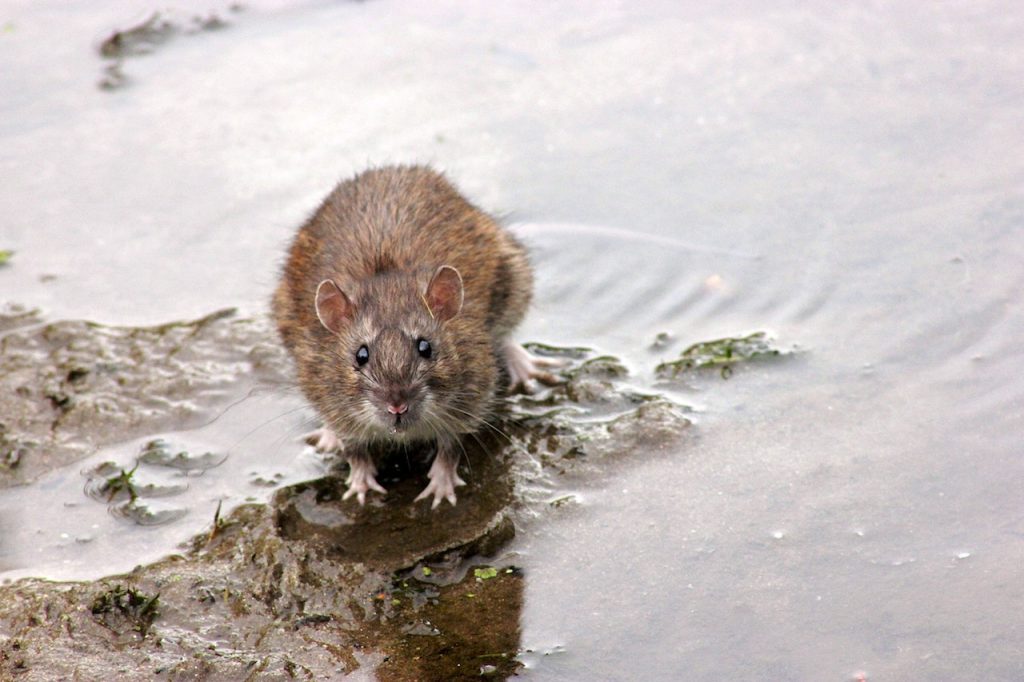Police in India have accused rats of eating nearly 200 kilograms of cannabis seized from dealers and held in police warehouses after the court asked them to present it as evidence. Meanwhile, a high-ranking Mathura district police officer told reporters that some of the cannabis stored at police stations in his area had been “damaged by heavy rains” and had not been destroyed by rats.
Cannabis Disappears From Police Warehouses. Police Say Rats Ate It


Police in India have accused rats of eating nearly 200 kilograms of cannabis seized from dealers and held in police warehouses. “Rats are small animals and are not afraid of the police. It is difficult to protect drugs from them,” – said a court in the state of Uttar Pradesh.
For more news like this, download our free cannabis news app.
Judge Cites Three Cases of Police Losing Cannabis
When a court asked police to present the seized cannabis as evidence in drug trafficking cases, it turned out that nearly 200kg of cannabis was missing from the warehouses, which were allegedly eaten by rats.
The judge cited three cases in which cannabis was eaten by rodents.
Judge Sanjay Chaudhary said that when the court asked police to present the confiscated cannabis as evidence in the case, it heard that 195 kg of cannabis had been “destroyed” by rats.
In another case involving 386 kg of cannabis, police filed a report saying that “some of the cannabis was eaten by rats.”
200kg of Cannabis in Police Warehouses “Threatened” by Rats
Judge Chaudhary said that some 700 kg of cannabis confiscated by police was lying in police warehouses in Mathura district and that “all of it was threatened by rat infestation.”
He said that the police have no experience in dealing with such cases because the rats are “too small.” He added that the only way to protect confiscated goods from “such fearless mice” is to auction the seized cannabis to research labs and medical cannabis companies, with proceeds going to the government.
Another Officer Blames Heavy Rains
A high-ranking Mathura district police officer told reporters that some of the cannabis stored at police stations in his area had been “damaged by heavy rains” and had not been destroyed by rats.
Is the Story True?
In 2018, eight Argentine police officers were fired after accusing mice of disappearing half a ton of cannabis from a police warehouse. But experts disputed this theory, saying it was unlikely that the animals mistook cannabis for food, because if “a large group of mice had eaten half a ton of cannabis, many corpses would have been found in the warehouse.”
What the experts didn’t know, however, was that consuming even 500kg of raw hemp wouldn’t cause any psychoactive effect. In hemp, THC is found in the acid form (THC-A), which only converts to Delta-9-tetrahydrocannabinol when heated, which has psychoactive effects. Mice would have to decarboxylate the seized cannabis or burn it and inhale the smoke, although even in this case it is difficult to cause a fatal overdose.
A Coincidence?
In 2017, police in the eastern Indian state of Bihar accused rats of consuming thousands of liters of seized alcohol, a year after the state banned the sale and consumption of alcohol.
—
(Featured image by Denitsa Kireva via Pexels)
DISCLAIMER: This article was written by a third-party contributor and does not reflect the opinion of Hemp.im, its management, staff, or its associates. Please review our disclaimer for more information.
This article may include forward-looking statements. These forward-looking statements generally are identified by the words “believe,” “project,” “estimate,” “become,” “plan,” “will,” and similar expressions. These forward-looking statements involve known and unknown risks as well as uncertainties, including those discussed in the following cautionary statements and elsewhere in this article and on this site. Although the company may believe that its expectations are based on reasonable assumptions, the actual results that the company may achieve may differ materially from any forward-looking statements, which reflect the opinions of the management of the company only as of the date hereof. Additionally, please make sure to read these important disclosures.
First published in Fakty Konopne, a third-party contributor translated and adapted the article from the original. In case of discrepancy, the original will prevail.
Although we made reasonable efforts to provide accurate translations, some parts may be incorrect. Hemp.im assumes no responsibility for errors, omissions or ambiguities in the translations provided on this website. Any person or entity relying on translated content does so at their own risk. Hemp.im is not responsible for losses caused by such reliance on the accuracy or reliability of translated information. If you wish to report an error or inaccuracy in the translation, we encourage you to contact us.



Comments are closed for this post.